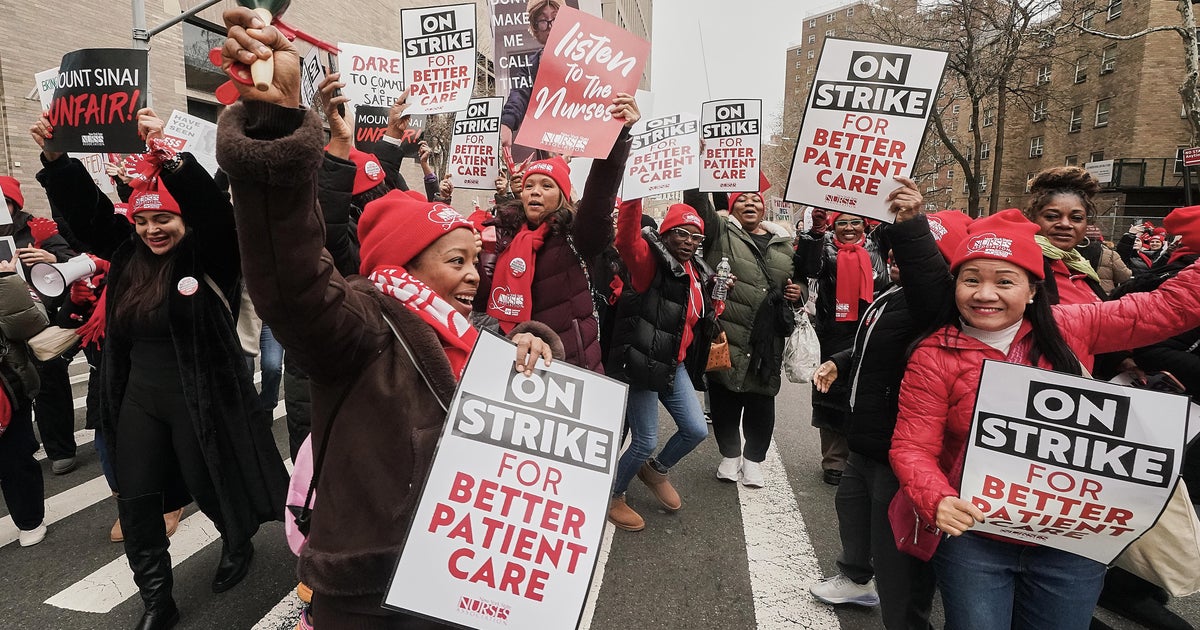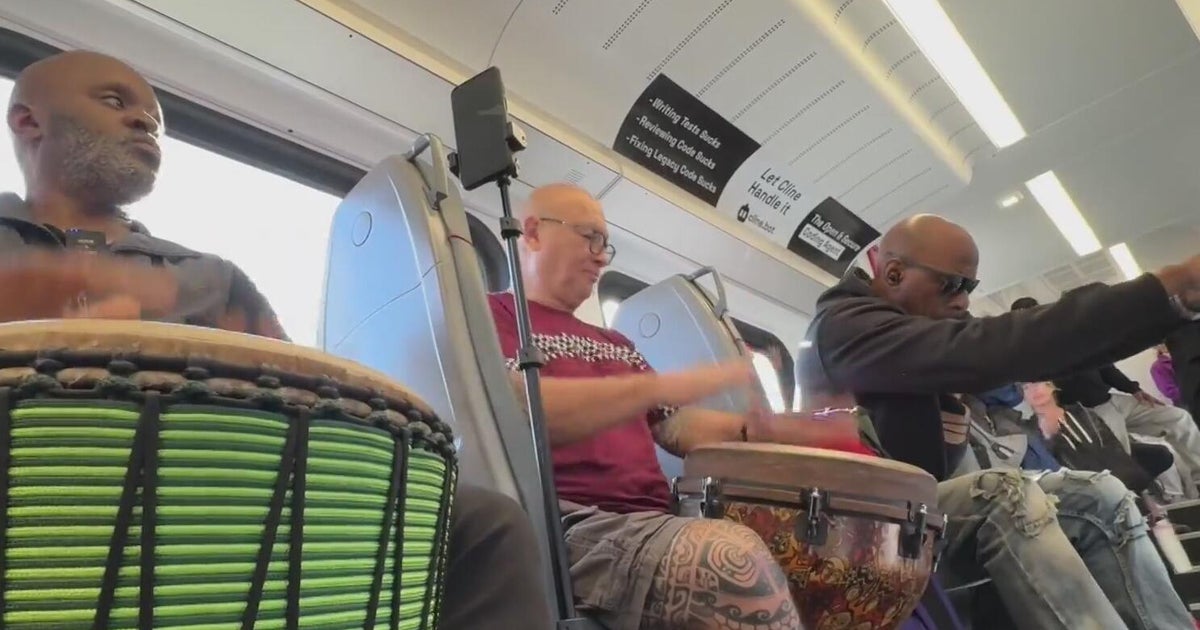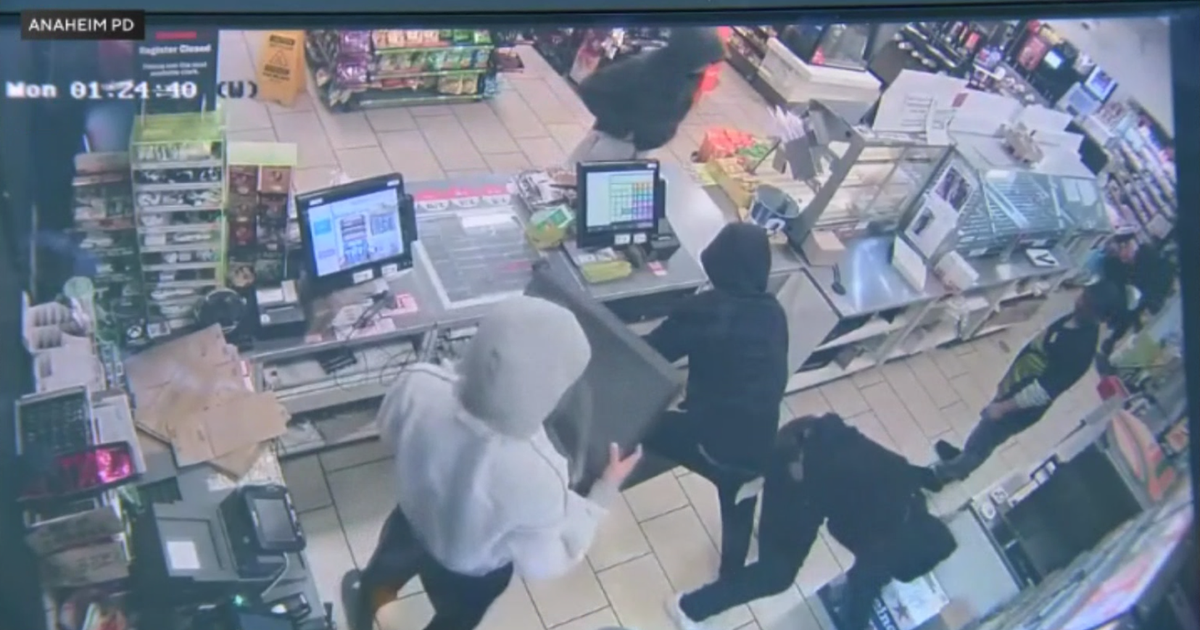Employers Blast NYC's Business Integrity Commission Over Applications, Fees
By Rebecca Granet, 1010 WINS
NEW YORK (CBSNewYork) -- When two New York City Business Integrity Commission officers showed up at the doorstep of Il Forno Bakery on Aug. 15, it seemed like déjà vu for the bakery's president Ramon Eduardo.
Almost.
This time, when they came to his business, it was to follow up on an application that he was asked to fill out in 2011. An application that Eduardo said he thought he had long since completed.
Just about two years earlier, five uniformed officers from the Commission appeared at the Bronx bakery to deliver a letter stating that the bakery had to register with the Business Integrity Commission (BIC). The letter came with a 30 page application and a $4,000 price tag.
"At the very beginning they just showed up here, and actually with firearms," Eduardo said.
Three months later, the BIC officers returned with photo ID applications for all of the employees, according to Il Forno's Chief Financial Officer Margaret Condyles. The applications came with $100 price tag per employee.
In addition to the money, it was the application questions that seemed to trouble Eduardo.
"They [his employees] don't have to tell me or anyone who they're married, who they've been divorced and all those things, where they lived for the last ten years," Eduardo said. "I have to go and pinpoint each address."
In a statement to 1010 WINS, BIC said, "The application process is intended to ensure a fair and competitive environment, free from the influence of organized crime for businesses operating in the Hunts Point Markets and the immediate surrounding area. We do not check for immigration status and the fees are tied directly to how much it costs to do the review."
Edward Taylor, president of Down East Seafood Inc., received a similar visit at his place of business from BIC this year. According to him, the questions on the applications include inquiries about how many times a worker has been married and what family members live with the employee.
"BIC is telling me that I have to make sure these questions are answered and they are answered correctly and everything is notarized, and if my employees don't do this, they will not be allowed to work there," Taylor said.
Taylor has 60 employees. In order to comply with BIC's application requirements, he said he will have to pay $10,000 this year in registration and application fees. He also said he feels that the application questions are highly personal.
"They're ludicrous questions," Taylor said. "I don't see any of it pertinent."
According to the New York City Business Integrity Commission website, from the mid-1990's, corrupt influences primarily from organized crime plagued the "city's private trade waste and wholesale market industries and their associated unions." The impact of organized crime drove down fair and honest competition in these industries.
In response to some of the issues, BIC was formed in 2001 by merging the Trade Waste Commission, which was created under Local Law 42 "to oversee and regulate the industry," with the Markets Division at Small Business Service and the Gambling Commission. The newly combined BIC was created in order to better regulate organized crime by utilizing the various resources and knowledge from the different commissions and divisions. The Commission's website states, "BIC's goal is to ensure that the trade waste and wholesale market industries remain a level playing field for honest companies and their customers."
Despite BIC's stated mission, many local business owners find the Commission's registration and employee photo ID applications, when taken together, to be invasive.
"I'm a private citizen, operating a private business on private property and the city is basically imposing a burden of proving that I'm not a criminal in order to operate those businesses," said Ian MacGregor, president and owner of The Lobster Place.
On Sept. 12, Taylor said there was an emergency meeting of the Chamber of Commerce where the issues associated with these applications were discussed.
"The employers themselves think these questions are invasive and violate personal privacy, so they're the ones who, in a sense, have organized this effort to push back," said Foster Maer, Senior Litigation Council at LatinoJustice PRLDEF (the latter an acronym from the organization's former name, standing for the Puerto Rican Legal Defense and Education Fund).
LatinoJustice PRLDEF was contacted by a few dozen employees who asked them to take action on their behalf.
"We're in the middle of drafting a letter to the Commission outlining why we think these questions are unauthorized under city law," Maer said.
There is a language barrier problem with the applications as well. Taylor said the questionnaires were only given in English and he asked that they be translated into Spanish.
"Some of our folks that work for us, Spanish is their first language," Taylor said. "We got the first page in Spanish and we of course translated the rest of it for our employees."
Taylor also says BIC's requirements may have far-reaching implications for the economic future of the area in which BIC is enforcing the applications.
"If you're a business owner, why would you move into this area?" Taylor said. "You would stay outside of their zone."
In fact, Frank Loriggio, President of Bayside Seafood in the Bronx, is considering moving his business to another location.
"If I have to be investigated, and my guys have to be investigated, you know there is too much government involved in my business," he said.
Loriggio says he thinks that these BIC requirements are the final straw for him, and Taylor has a similar sentiment.
"My project this year was going to be to put a second story on our building, to expand our offices and do a green roof with solar panels and grow vegetables, and now I'm spending all my time with BIC and I don't even know if I want to stay in my neighborhood," Taylor said.
On Sept. 23, Taylor wrote an e-mail to BIC via the Commission's website to submit a complaint about these practices. Taylor says BIC called him later in the week to indicate that they were willing to meet with him.
Taylor has also been reaching out to the City Council to set up meetings about this issue and has received some responses. He says he hopes to have the Council change the law.
"It's an unfair, unjust, un-American law that is not serving the purpose it was originally designed for," he said.
Ultimately Loriggio says that for him, there is an ideal resolve that can come from this situation.
"Let us do our business," he said. "We have enough licenses."
You May Also Be Interested In These Stories:







